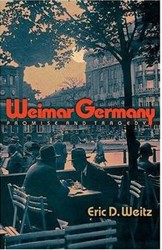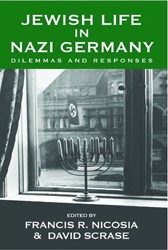As William Blake spoke of seeing the world in a grain of sand, Mirjam Zadoff reveals the world of German Jews in the early twentieth century through the life of one minor politician, Werner Scholem. Scholem was a soldier, dissident Communist, member of the Reichstag, and victim of the Nazis.
Eighteen years old when World War I broke out, Scholem, like millions of other Germans, suffered in the trenches and faced heavy enemy fire. As the war ended, revolutionaries — many of them Jewish — tried to declare a socialist republic. Long fascinated by the idea of revolution, Scholem gained a reputation as a stirring orator and emerged as one of the leaders of the German Communist Party, getting elected to the Prussian legislature in 1921 and to the national Reichstag in 1924.
Because he refused to accept the dictates of the Comintern in Moscow, he eventually joined a Trotskyite, anti-Stalinist faction called the Left Opposition. Now he had to deal not only with attacks from the Right for being a “traitor” and for being a Jew, but also with the vitriol of the hard-line Communists. Meanwhile, the prospects for the Left dimmed as the Nazis won more and more seats in the parliament.
When the Reichstag burned in 1933, a month after Hitler took power, the police arrested Scholem. Astonishingly, he was soon released, yet did not flee Germany. He still had faith in the German legal system, and did not want to leave his wife and daughters behind. His next arrest led to a progressively worsening ordeal in prisons and concentration camps, ending with his murder in Buchenwald on July 17, 1940.
As Scholem had set aside Judaism in favor of the utopian possibilities of socialism, his younger brother, Gerhard, later known as Gershom, was drawn to the redemptive qualities of Zionism and the apocalyptic possibilities in Kabbalah. By contrast, their two older brothers, Reinhold and Erich, were businessmen — German patriots of Jewish descent who simply wanted to succeed as members of the middle class. Their family serves as a microcosm of Jews in the Weimar Republic and their journeys.
Though Gershom and Werner followed seemingly different paths, Zadoff believes the two brothers represent “two utopias seated at one table.” They reacted against their bourgeois family in different ways, yet shared a fascination with the project of human redemption. The scholar Michael Löwy similarly finds an affinity between secular utopianism and Jewish messianism among German Jewish intellectuals in the 1920s, which in his view resulted from a mix of German Romanticism and the kabbalistic idea of tikkun olam.
Werner Scholem: A German Life represents an enormous achievement in research, biography, history, and thought. Zadoff is a born storyteller: she has a great gift for digesting enormous amounts of information and weaving it all into a novelistic, often suspenseful narrative. Like a great novelist, she situates her protagonist in his social context, amid his family, friends, colleagues, and adversaries — all of whom come vividly alive in the telling.
Bob Goldfarb is President Emeritus of Jewish Creativity International.





